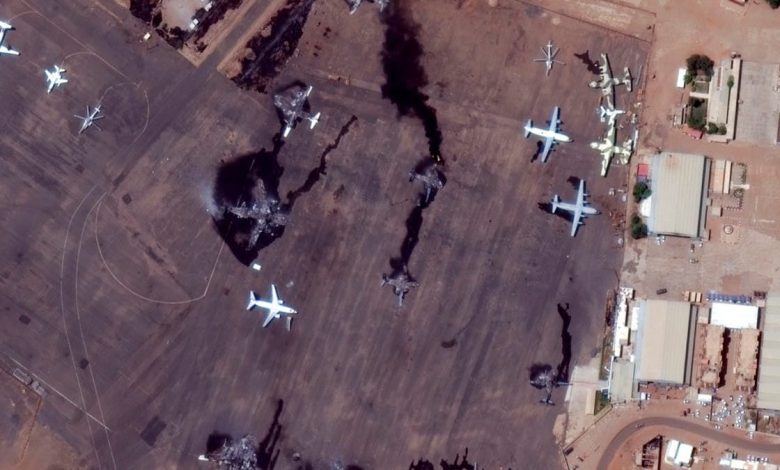Suggestions to begin the reconstruction of Khartoum Airport and Shambat Bridge

Sudan Events – Rehab Abdullah
The views of economic experts and observers varied regarding preparing a plan to reconstruct the country and raising the cost to funding agencies. While some called for postponing the development of a plan to reconstruct the country due to the militia war and the deliberate destruction of infrastructure, others saw the importance of preparing it now.
The Chairman of the Sudan Reconstruction Round Table, Ambassador Dr. Ali Youssef, confirmed that the greatest goal of post-war Sudan is reconstruction and reconstruction, and providing basic elements to achieve this initiative.
Dr. Abu Bakr Al-Tijani stressed during his intervention in the “Economic Forum” group that such work requires several reviews and a change in priorities because the scale of destruction increases every day as the war continues, and he believed that it is better to wait until the war stops, and then formulate a plan for reconstruction and How to implement it.
However, the head of the Sudanese-Egyptian Integration Center, Dr. Adel Al-Faki, stressed the importance of starting to develop a reconstruction plan, and justified this on the grounds that countries and international institutions need a long time to prepare studies and then submit them to their competent bodies for approval, and after doing the funds raising, then proceeding with Implementation.
If we can shorten some of these steps by preparing studies and information in advance, then this is good and will not harm anyone.
Dr. Abu Bakr agreed with Al-Faki on this point if the matter will go this way, adding that it is customary to hold conferences immediately after the end of wars and collect funds for reconstruction.
“If there is something that can be rebuilt before the end of the war, it would be to start with the infrastructure, Khartoum Airport, the Shambat and Jabal Awliya Bridges, Merowe Airport, the Gezira Scheme, and the vital towers in Khartoum.” He added.
“The value of the currency is negatively affected in situations of war, disasters, security chaos, political instability, and the like, and this is what we are experiencing now in Sudan, especially with the Sudanese economy suffering from structural imbalance in economic indicators, such as inflation, the balance of payments, foreign reserves, and the deficit in the general budget.” In addition to the creation of new money through deficit financing, the continuation of the war, the expansion of forced migration from homes, and the increasing number of displaced persons and refugees.”
Fathi added that so far the government has not addressed these indicators in the correct ways or even created an emergency first aid plan to confront the effects of the current war, which is the reason the exchange rate is vulnerable to a rise with further loss in value, and any improvement in its exchange rate will be limited (by traders’ speculation).
He noted the decline in foreign trade and the high inflation rate due to the increase in government spending in relation to public revenues that were lost due to the cessation of many services due to the war. Exports also declined by a very large percentage, in addition to the increase in demand for imports.
The departure of foreign and national capital invested outside Sudan increased, much of it stopped, and a large part of these investments were looted and destroyed, especially investments in areas currently witnessing conflict.
Dr. Haitham drew a road map to address the collapse of the Sudanese pound and said that a plan must be developed that works to remove the obstacles facing some local industries in the country in stable areas, work to facilitate export operations, and take strong steps and monetary policies.



